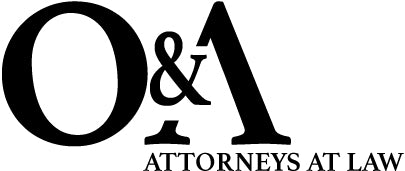
Business Interruption Claims and Force Majeure Clauses During COVID-19
Of the many mishaps suffered in the wake of the coronavirus (or COVID-19) pandemic, there are few as far-reaching as the disruption of business and commercial relationships.
Commerce runs on the quintessential ingredient -contracts- and the severe stress faced in their performance or lack thereof continues to drive reassessments of contractual rights and obligations. In fact, disputes are already emerging on the question whether force majeure clauses and business interruption insurance are claimable reliefs under the pre-text of the Coronavirus, and the breach or non-performance of contractual obligations.
The issue now is that Classic business interruption insurance may not typically cover Covid-19, and force majeure clauses are usually interpreted strictly and often deny relief. Regardless, each case plays to its own merits and there are possibilities where protection or relief will be granted under these constructs.
Force Majeure
Force Majeure clauses are especially prominent now following the coronavirus outbreak. This is not to say that they are a new concept.
Force majeure clauses have been around for a while now as an exception to the common law rule that a party that breaches or fails to perform the contract will be liable to its counterparty to do so. It’s a common feature in most contracts and serves to excuse a party from the performance of the agreement following the occurrence of an “act of God” or other extraordinary event beyond the reasonable control of the party which hinders performance.
Where a contract contains a force majeure clause, it does not absolve a defaulting party of all liability; no matter the underlying circumstances. Rather, it will specifically deal with how the parties’ obligations are affected by an event that affects one of the party’s ability to perform. And although the courts are keen to adopting narrow interpretations of the clause, the burden to prove rests on the party seeking to rely on it.
These interpretations have clarified an “act of God” as not merely limited to an out-of-control event; rather the test is whether, in the circumstances, the unbeatable event could not have been prevented by the diligence and care of the parties. A mere slump in business fortunes will not naturally be considered an act of God. Neither will a mere increase in expense or some other business-halting problem unless to such a degree that performance of the contract becomes excessively impracticable and unreasonable.
Force majeure clauses differ, so the particular clause will need to be scrutinized to excuse performance of a contract due to the coronavirus. One must consider;
- If the coronavirus epidemic is explicitly included as a force majeure event in the contract. In the off chance that it is covered, some other requirements may still exist to constitute force majeure;
- Where the coronavirus is not specifically covered as a force majeure event, the question that is it the type of event that would fall under general force majeure wording? Or other esoteric wordings like “public health emergency” or “quarantine”;
- Whether the contract excludes events that could have reasonably been provided against, or lists qualifying events but not one that’s specifically applicable. Are they exhaustive? The word “reasonably” will need to be considered objectively in this regard;
- Whether causation has to be established. The party that is seeking to rely on force majeure usually has to establish that the force majeure event has prevented or hindered it from performance of the contract;
- The nature of the mitigation duties that apply. The party that is claiming force majeure relief is usually under a duty to show that it has taken reasonable steps to ease or avoid the effects of the force majeure event;
- The nature of the notice requirements that apply. Parties will wish to ascertain whether prompt notification is a contractual condition precedent to relief or not;
- Whether it is actually impossible or impracticable for the party to perform? Or it has just become expensive to do so;
- What the consequences of establishing force majeure are. In most contracts, establishing force majeure will lead to relief from performance, thereby avoiding the risk of a default termination, and an extension of time to target dates;
- The impact on the contract of any change in law. In respects, the decisions or actions taken by governments and public authorities in response to the epidemic may trigger change in the law concerning relief and compensation.
Business Interruption Claims
Claims for business interruption have their basis in an existing insurance coverage. The aim is to ensure continuity of business, and the package operates to protect or refund earnings which the policyholder would have enjoyed if business operations had not been interrupted. Apart from lost revenue, the insurance also covers expenses including rent, utilities, and payroll among others.
The defining factor in a business interruption claim is material or physical damage, which can be a matter of great contention with businesses and insurers. Especially when it falls to dispute whether or not the damage was caused by an occurrence that could validly trigger the cover. There are events in recent memory, that are just as devastating as the coronavirus and have seen payouts to large business interruption claims; including weather and man-made events.
Quite like the coronavirus, the outbreak of the Severe Acute Respiratory Syndrome (SARS) saw large payouts to claims like these; showing that business interruption claims have been triggered by non-physical damage events. However, things have changed quite a bit. Many insurers have since excluded viral or bacterial outbreaks from standard business interruption policies, and included a physical damage requirement. Insurers may, in these cases, argue the lack of the physical loss requirement, since it remains to be seen if courts will reach a consensus on whether contamination to property will properly constitute physical loss.
Fortunately, the jurisprudence is far from settled and it seems that the success of business interruption claims may in fact boil down to the content and language of the policy contract and the circumstances surrounding such claim.
In which case, a business interruption insurance package incorporating supply chain insurance, which operates to cover lost profits and costs resulting from disruptions in the company’s supply chain, may reasonably trigger protection. Fortunately, supply chain insurance packages are quite broad and cover “public health emergencies”; a term that reasonably describes the coronavirus. A business interruption policy that also covers civil authority-mandated closures, like the government’s shelter-in-place orders, will also provide appreciable cover for any loss of revenue.
Let our attorneys help you
The key thing is to carefully consider policy wordings and governing policies. In most contracts, establishing force majeure will lead to relief from performance (or a period extension), thereby avoiding the risk of a default termination.
Compared to Force Majeure clauses however, business interruption policies can provide broader and bespoke cover, for interruption caused by non-physical events. Regardless, there is the need to carefully consider the triggers for cover, in particular, whether cover is provided for losses that result from an outbreak of an epidemic or whether these losses are expressly excluded.
In all, the attendant issues brought to fore by the coronavirus require specialized advice on a wide array of still-evolving legal questions. The Attorneys at Oshan & Associates are well equipped to help with this. You can schedule a consultation at (206) 335-3880 or (621)-421-4062.
Leave a comment
Comments will be approved before showing up.
Also in Business Interruption Blog

What To Do If I Can't Reach My Attorney

Business Interruption Claims Attorneys
Was your COVID-19 business interruption claim denied by your insurance company? You may be entitled to claim against them for insurance bad faith and wrongful denial of your claim. Our business interruption claims attorney can help.

Business Interruption Policies and the Law
A lot of businesses have taken a hit since the outbreak of the coronavirus in the US. Business outfits are thus looking to find protection under their various business interruption policies. This article provides information on business interruption policies in the light of COVID-19 pandemic.
